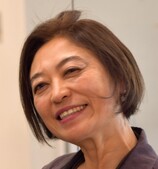
The world's leading foundry, Taiwan Semiconductor Manufacturing Co. (TSMC), is entering a phase of declining profitability as its ambitious expansion in the United States drives up production costs. This development signals the potential impact of "onshoring" pressures, championed by the previous Trump administration through tariffs, on the semiconductor industry's financial performance.
On April 17th (local time), TSMC announced its first-quarter (January-March) financial results, reporting revenue of $25.53 billion and an operating profit of $12.38 billion. These figures represent a 5% and 6% decrease, respectively, compared to the previous quarter. The company attributed this dip to the typical seasonal slowdown in the smartphone market at the beginning of the year and the recent earthquake in Taiwan, despite the ongoing robust demand fueled by the artificial intelligence (AI) boom. The Q1 results aligned with both analysts' expectations and TSMC's prior guidance.
However, the outlook for TSMC's profitability faces challenges. The company recently unveiled plans to invest an additional $100 billion over the coming years to construct three more fabrication plants (fabs) in the U.S. While this move aligns with geopolitical objectives and customer diversification strategies, the United States presents a significantly higher cost environment compared to Taiwan. Labor expenses are considerably greater, and the supply chain ecosystem for materials and equipment is less mature and potentially more expensive. This surge in production costs is expected to erode TSMC's profit margins.
In response to these rising costs, TSMC intends to charge higher prices for semiconductors manufactured in the U.S. Nevertheless, this pricing strategy is not anticipated to fully offset the increased expenses. The company has already projected a decline in its gross profit margin from 58.8% in the first quarter to around 58% in the second quarter, primarily due to the initial operations of its Arizona plant. Once the newly planned fabs become operational in the coming years, the negative impact on the profit margin is estimated to be in the range of 3 to 4 percentage points.
The broader impact of potential future tariffs on the semiconductor industry remains uncertain. For the second quarter of 2025, TSMC forecasts revenue growth of approximately 13% to around $28.8 billion, indicating continued top-line expansion. The company also maintained its previously stated full-year revenue growth forecast in the mid-20% range.
Regarding the recently discussed tariffs, TSMC acknowledged that it is "assessing the potential impact of the latest announced tariffs on market demand and other factors." However, the company stated that "at this point, we have not observed any changes in our customers' behavior." On the possibility of tariff exemptions, TSMC commented that "tariff negotiations are conducted between governments, and the company is not involved in these discussions."
Analysts suggest that while TSMC's long-term growth prospects remain strong due to its technological leadership and the increasing demand for advanced semiconductors driven by AI and high-performance computing, the near-term profitability will likely be under pressure due to its strategic investments in the U.S. The balance between geopolitical considerations, customer demands for supply chain resilience, and maintaining healthy profit margins will be a key challenge for TSMC in the coming years.
[Copyright (c) Global Economic Times. All Rights Reserved.]




























